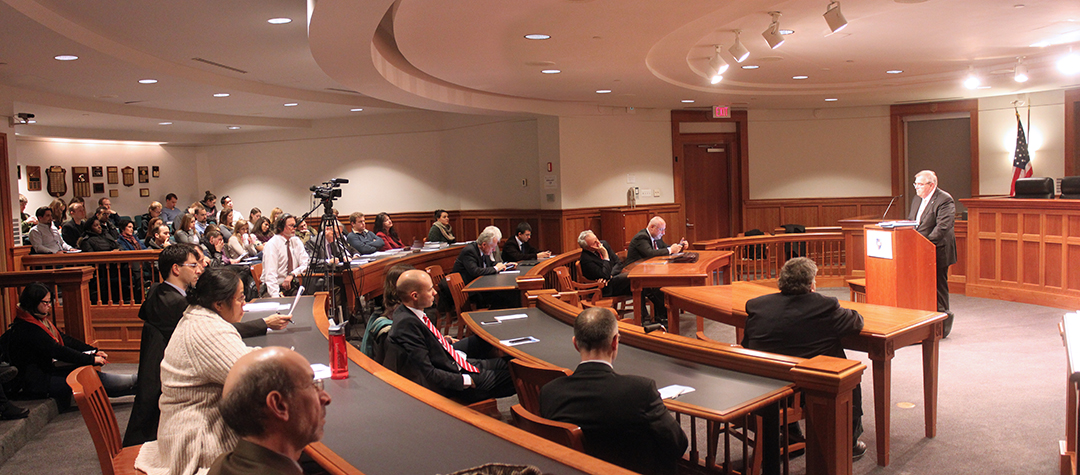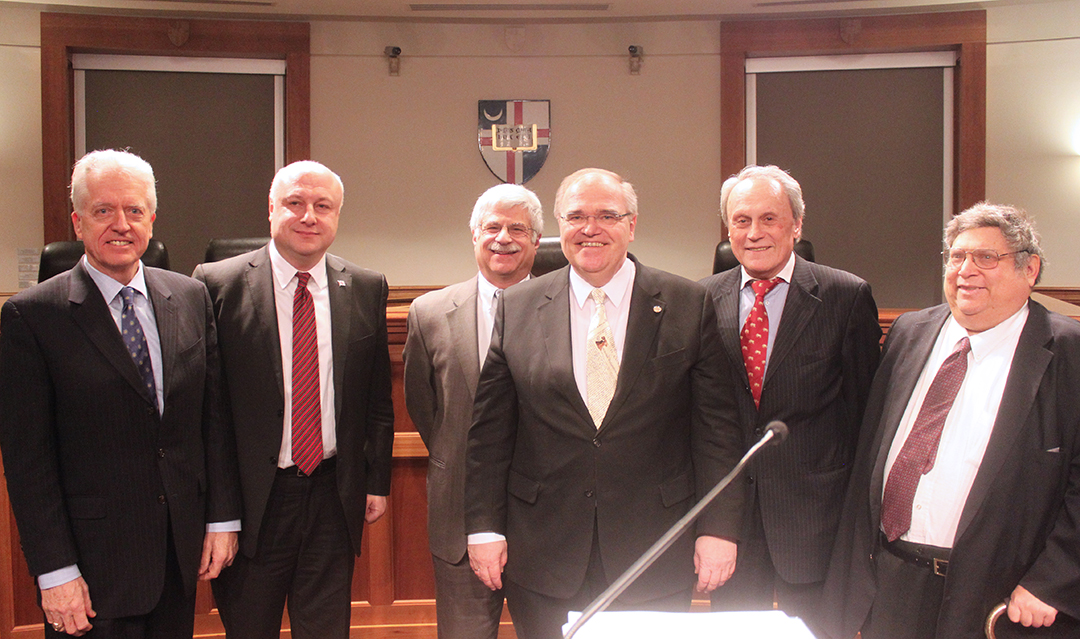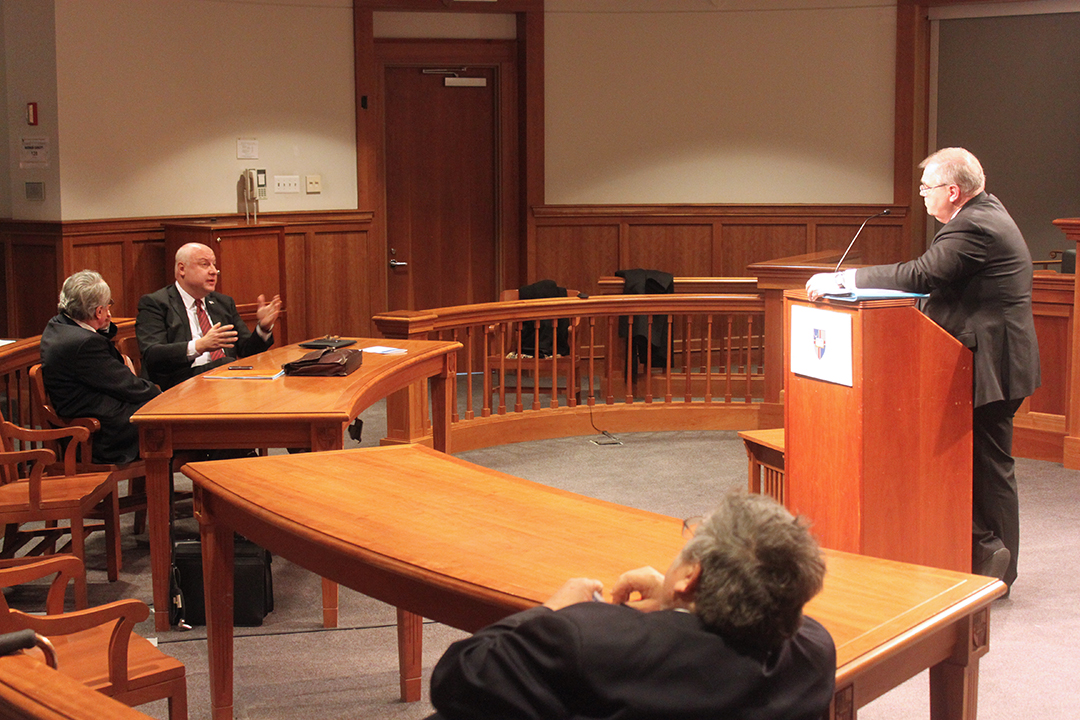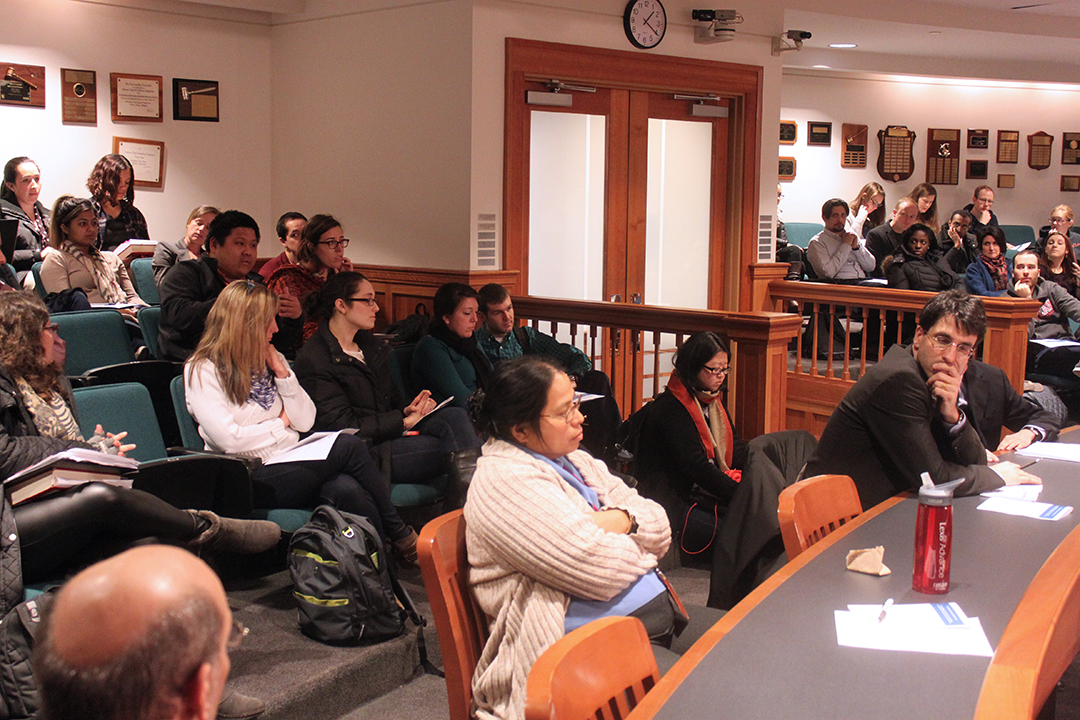
The attack on the French satirical magazine Charlie Hebdo in early January that killed a dozen people has refocused Europe's attention as never before on the subject of hate speech.

"We are still in shock by these attacks in Paris, it is still the number one news topic in Austria," said Dr. Wolfgang Brandstetter, Federal Minister of Justice of the Republic of Austria. "Speech involving religion causes the worst problems of all." His Feb. 3 remarks at the Columbus School of Law, "Hate Speech Legislation in Austria and the European Union," provided an overview of how European law deals with the kind of speech or expression that may incite violence. Brandstetter explained that member states of the European Union (EU) are bound by the conventions of its Court of Human Rights. In 2008, after seven years of deliberations, the Court laid out the framework for speech that is punishable by a prison term. Broadly speaking, the criteria includes demonstrated xenophobia, or speech that disparages or intimidates along the lines of race, gender, ethnicity, sexual orientation, language, or color. Under Austrian law, which mirrors EU guidelines, hate speech or a hate crime may land the perpetrator in jail for up to two years. While Europe prizes the right of free speech, Europeans accept that it comes with boundaries, said Brandstetter.

"Limitations are necessary in a democratic society for the protection of others. We in our legal system make use of such limitations, as compared to the United States," he said. Brandstetter's position is analogous to that of Attorney General in the United States. He said that for Europeans, the key measure of whether speech is protected or prosecutable is whether it may lead to or incite others to violence. He acknowledged that the EU standard might not play so well in America, which has a more unbounded understanding of the right of free speech. "For us, hate speech is misusing freedom of speech, and therefore shouldn't be permitted," Brandstetter stated. The European approach carries inconsistencies, the minister conceded. For example, denying or trivializing the genocidal crimes of Adolf Hitler could be prosecuted under speech laws, but denying those of Joseph Stalin would not. 
Brandstetter has served as Austria's Federal Minister of Justice since 2007. Prior to that, from 1998 to 2007, he was a professor of Criminal Law and Law of Criminal Procedure at the Institute of Criminal Law and Criminology, University of Vienna. His lecture-sponsored by the Interdisciplinary Program in Law and Religion and the Institute for Policy Research & Catholic Studies-was his second visit to CUA Law within the past year. In late September, he discussed the scourge of child sexual abuse and human trafficking at a breakfast roundtable held at the law school.
